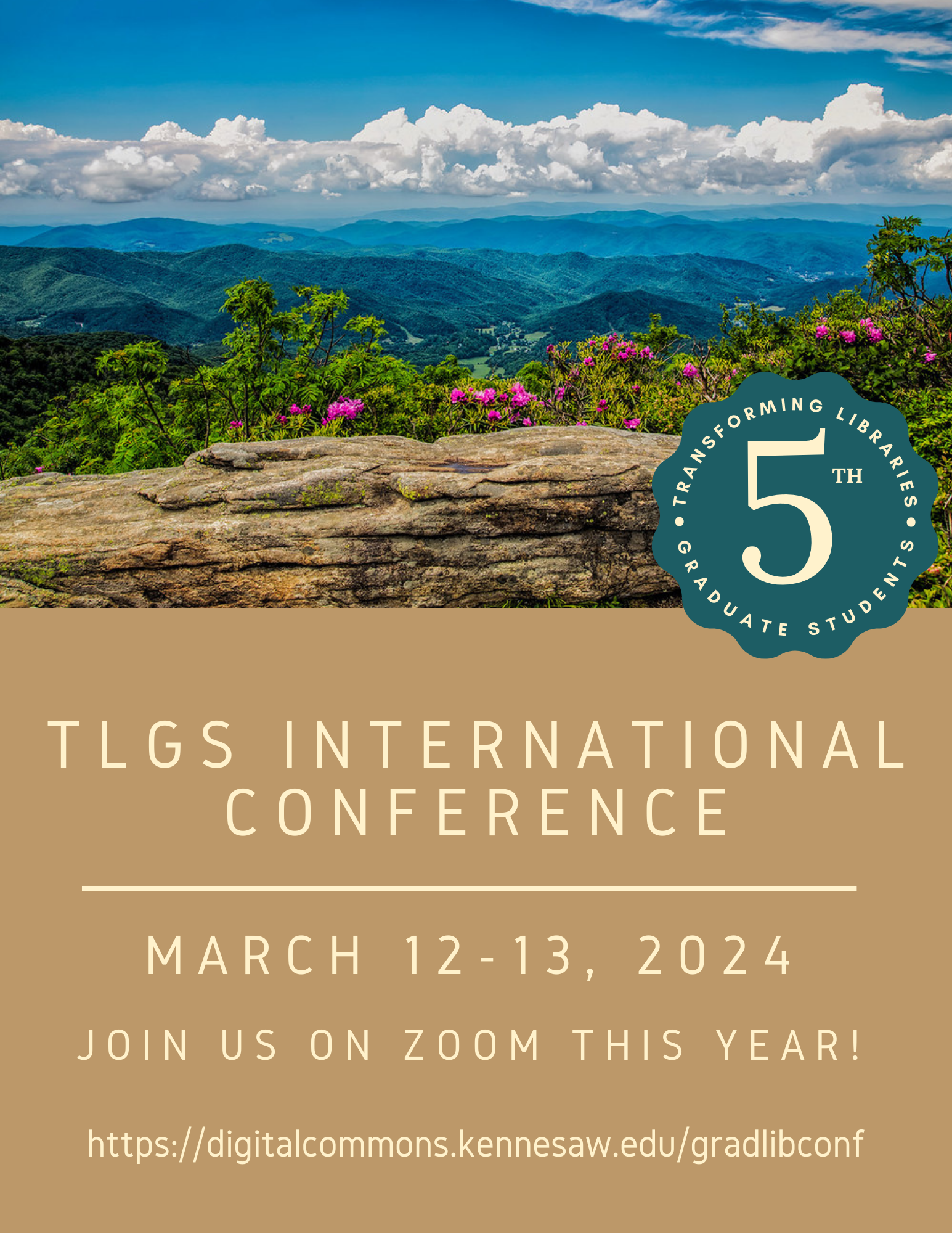Start Date
3-16-2022 12:00 PM
End Date
3-16-2022 12:30 PM
Keywords
Graduate Education, Course Mapping, Information Literacy
Description of Proposal
This presentation describes the process used to develop and implement an information literacy curriculum for graduate programs at Emory & Henry College. When the library director was hired, she noted that students were graduating without having contact with the library and without building necessary information literacy skills. She began searching the literature for solutions and approaches. She synthesized the literature and, after identifying barriers, created a plan. Her team of librarians began by developing a curriculum map for information literacy skills at the undergraduate level. They envisioned Emory & Henry graduates, and the information literacy skills they should have. Based on this brainstorming, they developed student learning outcomes which were grouped into lessons and broken down by student learning year. In 2020, Emory & Henry hired a Health Sciences Librarian for our School of Health Sciences and to assist with the graduate curriculum. She has followed the same process for developing a graduate information literacy course map. Each lesson was mapped to the ACRL Framework. The librarian developed lesson plans along with online modules for the information literacy lessons. Each lesson includes a skills assessment. The curriculum map was presented to faculty and administration with the idea that these were baseline skills students should have upon graduation, and these lessons would allow us to reach the goal of graduating information literate professionals. We presented the lessons as a time-saving and effort-reducing tool. Faculty were given the option to choose online or in-person instruction from a librarian, or to specify a course that they would provide the instruction within. Course directors and instructors signed off on the curriculum map. We have begun implementing this curriculum map among our undergraduate and graduate classes. Initial data indicates that Student Learning Outcomes are being met.
One lesson that we learned is that creating engaging outcomes-based lessons is difficult. There were many iterations of each lesson before the final lessons were approved. We believe that this program will standardize the information literacy skills our students develop, eliminating gaps and redundancies. We also believe that standardizing the lessons will decrease the amount of instruction development librarians will have to do. If a librarian happens to be unavailable for a scheduled instruction session, another can easily step in and fill the void. Our intention is to integrate the librarians into the curriculum more fully and provide more interaction between the librarians and our students. Finally, we believe this program is generalizable to other colleges and universities, both large and small, with and without a liaison structure for integrating librarians into instruction and developing consistent information literacy skills.
Included in
Curriculum and Instruction Commons, Educational Assessment, Evaluation, and Research Commons, Educational Methods Commons, Higher Education Commons, Library and Information Science Commons
Information Literacy Curriculum Mapping for Graduate Students
This presentation describes the process used to develop and implement an information literacy curriculum for graduate programs at Emory & Henry College. When the library director was hired, she noted that students were graduating without having contact with the library and without building necessary information literacy skills. She began searching the literature for solutions and approaches. She synthesized the literature and, after identifying barriers, created a plan. Her team of librarians began by developing a curriculum map for information literacy skills at the undergraduate level. They envisioned Emory & Henry graduates, and the information literacy skills they should have. Based on this brainstorming, they developed student learning outcomes which were grouped into lessons and broken down by student learning year. In 2020, Emory & Henry hired a Health Sciences Librarian for our School of Health Sciences and to assist with the graduate curriculum. She has followed the same process for developing a graduate information literacy course map. Each lesson was mapped to the ACRL Framework. The librarian developed lesson plans along with online modules for the information literacy lessons. Each lesson includes a skills assessment. The curriculum map was presented to faculty and administration with the idea that these were baseline skills students should have upon graduation, and these lessons would allow us to reach the goal of graduating information literate professionals. We presented the lessons as a time-saving and effort-reducing tool. Faculty were given the option to choose online or in-person instruction from a librarian, or to specify a course that they would provide the instruction within. Course directors and instructors signed off on the curriculum map. We have begun implementing this curriculum map among our undergraduate and graduate classes. Initial data indicates that Student Learning Outcomes are being met.
One lesson that we learned is that creating engaging outcomes-based lessons is difficult. There were many iterations of each lesson before the final lessons were approved. We believe that this program will standardize the information literacy skills our students develop, eliminating gaps and redundancies. We also believe that standardizing the lessons will decrease the amount of instruction development librarians will have to do. If a librarian happens to be unavailable for a scheduled instruction session, another can easily step in and fill the void. Our intention is to integrate the librarians into the curriculum more fully and provide more interaction between the librarians and our students. Finally, we believe this program is generalizable to other colleges and universities, both large and small, with and without a liaison structure for integrating librarians into instruction and developing consistent information literacy skills.



What takeaways will attendees learn from your session?